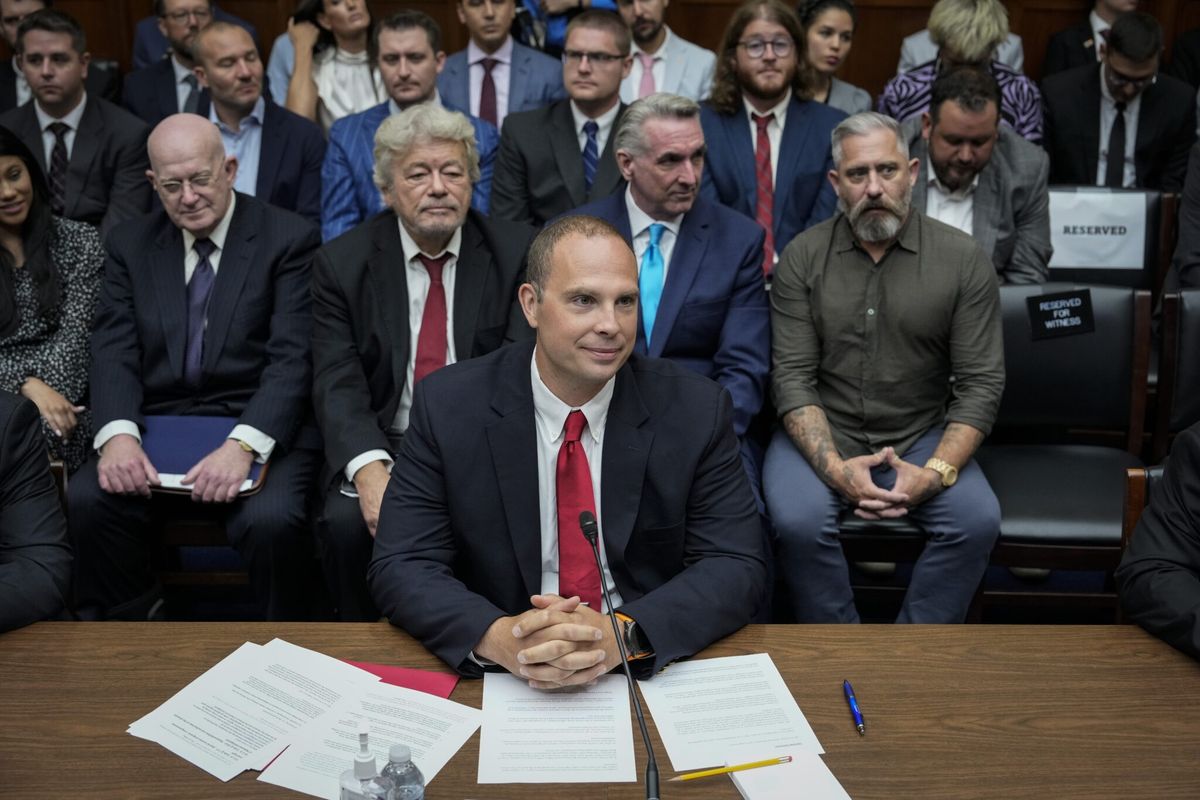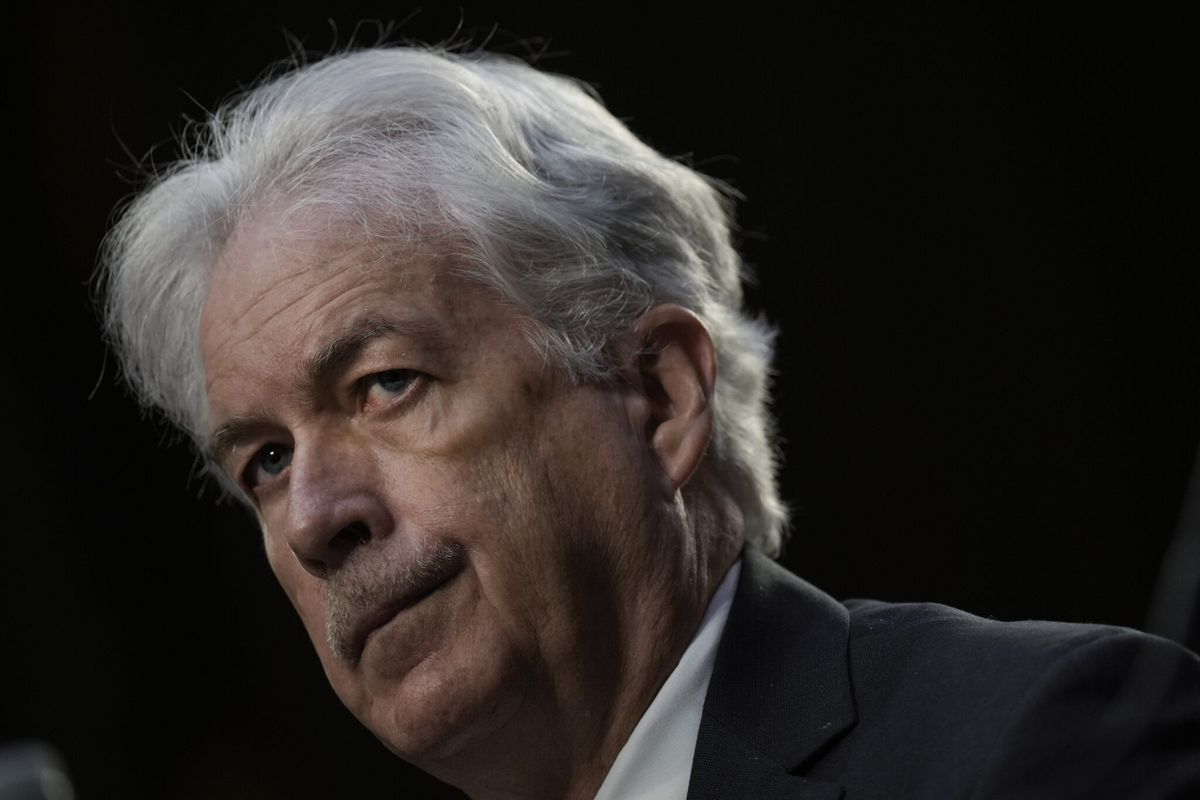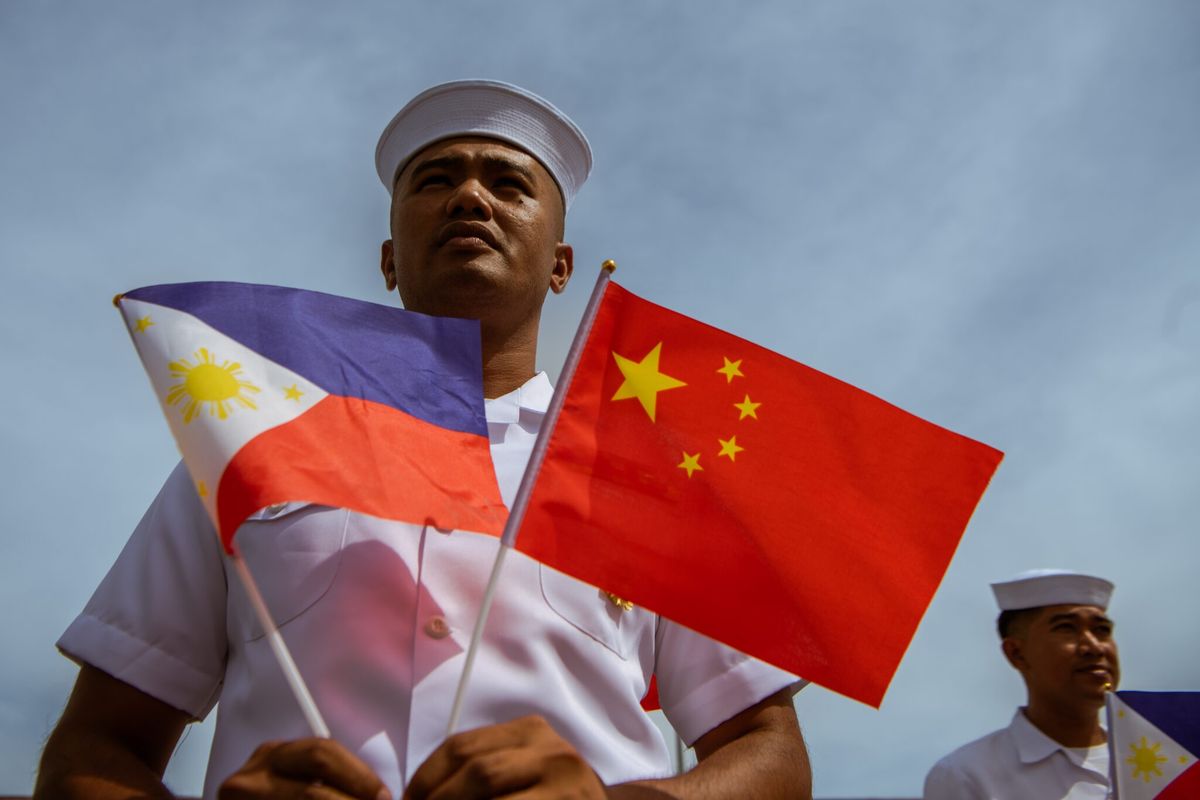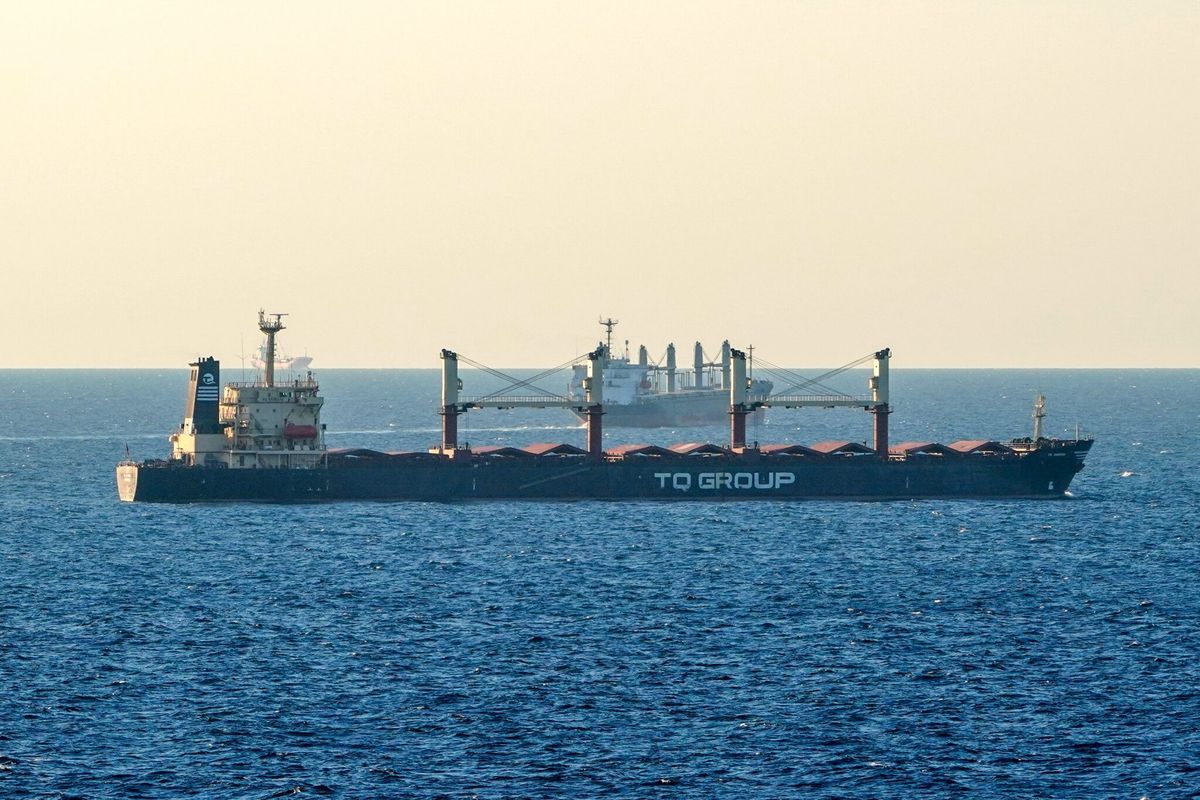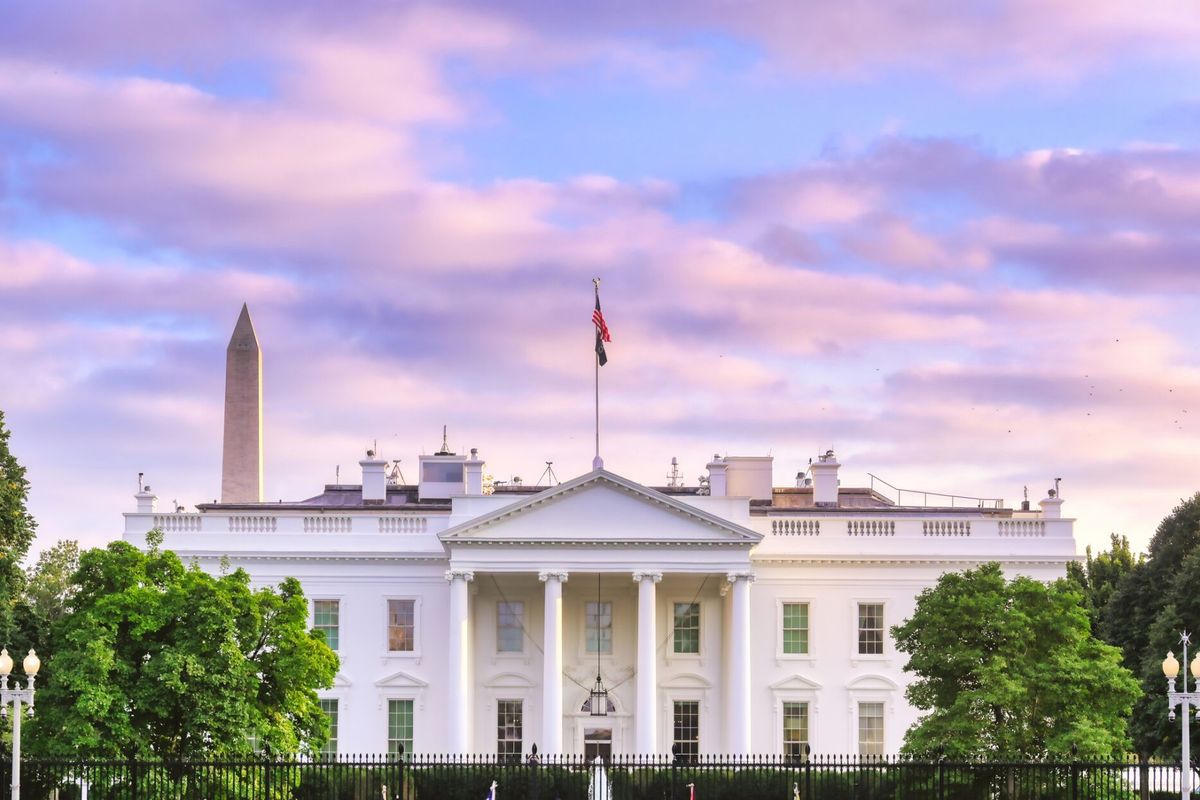Exclusive Subscriber+Member Interview — In a flurry of negotiations on the eve of the NATO summit, Turkish President Recep Tayyip Erdogan revealed himself as the dealmaker that he is, said former U.S. Ambassador to Turkey and Cipher Brief Expert James Jeffrey.
"This guy does deals," he said of Erdogan's decision to no longer block Sweden's admission into the alliance, a stunning reversal from an earlier statement that tied Sweden's membership to the condition of Ankara's acceptance into the European Union.
And yet despite Stockholm's seemingly newfound support, the 'poker game' continues, Jeffrey added, with Erdogan still very much wielding an ace "up his sleeve."
"Remember, [the deal] has to be ratified by the Parliament of Turkey to enter into effect for Sweden to become a member," explained Jeffrey, who noted that Ankara's ambitions for closer economic ties with Europe, along with its impatience over a delayed U.S. F-16 package deal, have likely not disappeared. "Erdogan still has pressure points with the Europeans and with the United States ... [and] he will have two partners now, Finland and Sweden [that] owe him."
In March, Turkey green-lighted Finland's entrance into the alliance. Its E.U. ambitions, however, go back much further. Ankara first applied to the E.U. in 1987, but European Parliament members suspended talks after thousands were arrested amidst a purge of Erdogan's political opponents, following a failed coup in 2016.
While Monday's moves will likely better position Turkey in those talks, Ankara's immediate goals may also be more limited.
“Erdogan probably doesn't really want or expect Turkish E.U. membership,” Jeffrey explained. “What [he] would like is a renegotiation of the extremely important E.U.-Turkey Customs Union.”
Those talks, which have been stalled for years, would effectively constitute an update to a 1995 E.U.-Turkey trade deal that in many ways helped pave the way for Turkey’s transition from an agrarian economy to an industrial one.
“That has been the motor of the Turkish economic growth in the last 25 years,” explained Jeffrey, who noted that Turkish leadership has long "been pushing” for a resumption of those talks.
In a sign perhaps of closer ties, NATO Secretary-General Jens Stoltenberg noted during Monday's press conference that Stockholm would help further Turkey’s E.U. ambitions, while also committing to working together in anti-terrorism efforts.
The Cipher Brief spoke with America’s former top diplomat in Ankara, just hours after news of Monday's deal unfolded.
The following conversation has been lightly edited for clarity.
James Jeffrey, Former U.S. Ambassador to Iraq and Turkey
Ambassador James F. Jeffrey joined the Wilson Center in December 2020 as Chair of the Middle East Program. Ambassador Jeffrey served as the Secretary’s Special Representative for Syria Engagement and the Special Envoy to the Global Coalition To Defeat ISIS until November 8, 2020. He is a senior American diplomat with experience in political, security, and energy issues in the Middle East, Turkey, Germany, and the Balkans.
The Cipher Brief: What do you now make of President Erdogan agreeing to back Sweden’s NATO bid? And how does it play into his earlier statements that tied that deal to Turkey's own E.U. ambitions?
Jeffrey: Europe wants to have closer economic and investment relations with Turkey because firms make money, [and] it diversifies markets. It's been a good thing for the E.U., as well as for Turkey, and everybody knows that. The main obstacle has been political, namely the usual problems with Greece and Cyprus. What Sweden, I'm sure has done, was to give a strong commitment that it will help.
I also would have to caution, not just with Erdogan, but with people throughout the Middle East, that as long as they have a node where they can stop something after they've committed to it, [and fall back on an excuse of] 'Well, you didn't read the fine print', we may not have heard the last of this. For example, Erdogan can send it to parliament. [For context], I would point out that the [Biden] administration has formally sent the request to provide the F-16 package [for Turkey] to the U.S. Congress, and it has sat there for months. So, Erdogan still has pressure points with the Europeans and with the United States. I'm not going to predict that he will exploit them. I'm simply going to say that he has that option, particularly if there's any sign of negativity. Watch what comes out of the U.S. Senate. If there is anything from Senator [Bob] Menendez or [Senator] Chris Van Hollen, [who have advocated for changes in Turkey's relationship with NATO before F16s are delivered, in which they say] "Well, that's nice, but it's just not enough," Erdogan will figure out some way to drag this out further.
The Cipher Brief: What sort of reaction do you have, given President Erdogan had been towing a very different line with regard to Sweden until late Monday? This seems like a sudden reversal.
Jeffrey: It is, but this guy does deals. We were facing the total collapse of our military and 'defeat ISIS' posture in Northeast Syria when he came in October of 2019. President Trump tried to fix it by sending a letter from the Kurdish Syrian Democratic forces chief. That wasn't received very well, to say the least. Then, in desperation, we imposed really strong sanctions and [Vice President] Mike Pence and [Secretary of State Mike] Pompeo flew over there. Within eight hours, we got a deal. It was a similar situation with the NATO radar in Eastern Turkey back in 2010. We negotiated and Erdogan had all kinds of demands. Some were reasonable and others were self-serving beyond normal national interests. We were able to meet most of them. Then one day, he just decided he would do the deal. I still think he may have an ace of some sort up his sleeve in terms of how fast it gets done by the parliament. Remember, it has to be ratified by the Parliament of Turkey to enter into effect for Sweden to become a member.
The Cipher Brief: What is Erdogan looking for?
Jeffrey: He wants better treatment from the EU. And he thinks that he will have two partners now, Finland and Sweden, who both owe him and he's going to keep their feet to the fire for sure. Erdogan probably doesn't really want or expect Turkish E.U. membership. What they would like, is a renegotiation of the extremely important EU-Turkey Customs Union that they've been pushing for. That has been the motor of Turkish economic growth in the last 25 years.
The Cipher Brief: What knock-on effects might Sweden’s entrance to NATO have on the Kremlin?
Jeffrey: In terms of NATO accession, Turkey, by giving a green light to Finland, has already slapped Putin silly. By far the more important new NATO state from the standpoint of putting the Russians under pressure, is Finland. It gives Putin a thousand kilometer border to worry about. The Fins have probably the best conventional forces, if you count their reserves, anywhere in Europe other than France and Britain. In addition, it is a diplomatic disaster for Russia because Finland was formally a neutral state under the terms of the 1945 agreements with the Soviet Union at the time. So it would be like Austria. Sweden was never in that category. This was the bigger blow to Putin. I wouldn't look at Sweden necessarily from the standpoint of what Putin wants. I don't think he cares as much about Sweden as he does, certainly, about Ukraine or Finland.
Two points on Erdogan and Turkey and Russia: First of all, you've got to look at it somewhat through the same lens as Israeli-Russian or India-Russian relations. These countries are broadly in the American camp. It's just that they have other security concerns. For the Israelis, it's the Iranians and to some degree secondarily, Arab Islamic terrorists. For the Indians, it's China. Therefore, Russia is - in the case of India - a source of cheap oil and lots of weapons and diplomatic balance. You don't want China to be supported by Russia in a conflict with India, and the Indians know that. All these countries play something we've forgotten, which is 19th century great power politics.
The Israelis have issues involving hundreds of thousands of Jews still in Russia and their operations in Syria that require them to be very careful. They are also an irritation at times. With Turkey, it's a little bit different because unlike Israel and India, the Turks see Russia as their primary security threat. This is why they've been so effective and active in supporting Ukraine. The last thing they want is for Russia to dominate the Black Sea to Turkey’s north. They're unhappy about Russia in Syria and they've acted militarily for a variety of reasons there, but one of them is to contain the Russians and Iranians or to deny them terrain. But in addition, the Turks do believe in playing the great game. That is, and those of us who spend time in the Middle East understand it, you're never more than 85% our partner and you're always 15% on the other side.
You always have ties out to Qasem Soleimani and to Osama bin Laden, back in the day when they were around, that was the nature of all of the Arab states. Most of the time they could be counted upon, but they would hedge their bets. The Turks have to do this because the Russians have ways to put them under pressure through trade, particularly gas deliveries, but also through supporting more active PKK operations against Turkey and the Turks know it. There's another factor and that is the Turks see this 85, 15 breakout as critical for how a major player or want-to-be great power plays the game. Now [Charles] DeGaulle could give Erdogan lessons. Now the difference between DeGaulle and Erdogan is DeGaulle was a creature of the West. Erdogan is not and that's the third problem. In terms of personal worldview ideology, Erdogan is close to Putin.
He is an authoritarian figure. He hates the political correctness of the West. He hates, I know from experience, ambassadors going in and reading these naggy talking points about how he should run his country. And unless you're smart enough to cross them out, they come in from Washington with phrases like, "We know that your people want you to release journalists." We actually say these things, whereas the main purpose of the meeting is to discuss a real situation like a NATO radar in Eastern Turkey that will help us against Iranian missiles, and Erdogan gets that. He doesn't get all of the crap we dump on him beforehand. He's wondering why we're doing it. The one thing he knows is he never gets it from Putin and Putin never gets it from him. So there are a lot of reasons why they play this game, but at the end of the day, Russia is the biggest threat to Turkey. It needs us and it needs Ukraine and it understands that absolutely.
It’s not just for the President anymore. Are you getting your daily national security briefing? Subscriber+Members have exclusive access to the Open Source Collection Daily Brief, keeping you up to date on global events impacting national security. It pays to be a Subscriber+Member.
The Cipher Brief: To that point, President Erdogan said over the weekend that Turkey was pressing Russia to extend the Black Sea grain deal by at least three months. He also announced a visit by President Vladimir Putin that's coming up in August. What do you make of that?
Jeffrey: We have a vote coming up in the U.N. to extend the humanitarian crossing from Turkey into Italy. There are three and a half million internally displaced people who have fled Syria, camped right along the Turkish border. The Turks have already taken in almost 4 million Syrian refugees. The last thing they want, the last thing Europe wants, is for Russia not to vote for an extension. The Russians are being, as usual, difficult. But if that happens, those 3 million people vote with their feet. That's another pressure point Putin has on Erdogan. Erdogan and Putin negotiate in the same way and I've negotiated with both of them. Erdogan says, 'Look, we need to do something about the grain deal. And oh, what are the chances of you extending the crossing from Turkey into Syria?' Putin's response is, 'I understand it's really nice in Turkey in August. How's the weather, say around the 20th?'
This is how they do things. Why are the Turks different? For two reasons: One is that we hold Turkey to a different standard, to some degree subconsciously, because we see them as “the other.” They're not Israel, they're not France. They're like us. India is a little bit different, but they're too important. The Turks shouldn't be cutting deals like these other countries do.
The other thing, is that the other countries know how to assuage us. They know not to provoke us and to cut deals with us. Erdogan doesn't do that. Other Turkish leaders, [former Turkish President] Turgut Ozal for example was extremely successful at it. It's not in Erdogan's DNA to cut us slack. He hates the entire, if you will, 'liberal democratic social agenda' of Western Europe and most of the United States, other than perhaps the Republican Party.
He doesn't spare us his lashing out. So there's a constant fury about Erdogan in parts of the American public, in parts of the European public, which fits well into this. He's supposedly betrayed us again, letting Putin come. He's unleashing Putin and giving him diplomatic cover. They spent five years in what's called the 'Astana process', negotiating every few months up to the presidential level with the Iranians and the Russians about Syria.
When I was a Syria envoy, I initially thought I had to find some way to break that. Then after a while, I realized I didn't. Who cares? Every time Turkey does something, it's against the interests of Iran and Russia, other than with the Kurds. This is a way for them to balance what they're really doing with their rhetorical and diplomatic position. This is great power politics.
Looking for a way to get ahead of the week in cyber and tech? Sign up for the Cyber Initiatives Group Sunday newsletter to quickly get up to speed on the biggest cyber and tech headlines and be ready for the week ahead. Sign up today.
The Cipher Brief: You've met with Putin directly. In your estimation, what is he confronted with now? What's he thinking, given the nature of this NATO summit, the expansion of the alliance, the notion that Wagner boss Yevgeny Prigozhin is back in Russia, and Ukraine’s counteroffensive is slowly retaking ground that Russia has acquired over the past 18 months. What is Putin’s calculus now?
Jeffrey: Almost certainly, he realizes that he made a terrible mistake attacking Ukraine, certainly trying to take the whole country, which is clearly what he did by sending his first thrust straight for Kiev, and that it's not going well. However, he also knows that his vision and the vision of most of the people around him for Russia doesn't work without Ukraine and Belarus and probably the Caucasus and arguably Kazakhstan as part of a new Russian empire. Therefore, this is an existential struggle in not only Putin's view, but the view of many Russians. Thirdly, what's done is done, and Putin is a classic realpolitik thinker. What he thinks is that Russia is an autarky. It has most everything it needs. It has to hustle a bit for advanced electronics and that kind of thing, but it is able to stay in the war without tanking the economy or causing an explosion in the population. That is, there's no 1968 Lyndon Johnson moment looming for Putin in his mind.
The least bad of a set of bad options for him is to continue fighting. A) because he thinks he and his system can survive with continued fighting at this level of casualties and costs. And B) he thinks there's a real chance, and that gets to the real issues at the NATO summit, that the alliance will eventually tire of supporting Ukraine.
He understands that Ukraine will fight like hell and will do anything, but he knows that he's pretty much in the same place too, and he's four times bigger. He has very little confidence that the West really wants to subject itself to any real sacrifices. We could say that the biggest example was the Europeans cutting off Russian gas, and that was a surprise to him. But the point is, they didn't have to pay any real sacrifice. Germany recently slipped into recession, but ho-hum, the point is that they've been able to find alternative energy resources, so therefore, this has not been a major sacrifice to anybody. Certainly nothing like what the Russians are continuing to put up with, not to speak of even worse, the Ukrainians.
He doesn't think that they have the stomach to continue. It's the same assessment Hitler made in the 1930s, about the Western states. Hitler was right for a while and then he was wrong. Putin is wrong for the moment because people are pumping a lot of stuff into Ukraine and they are accepting certain strategic risks, but over the duration of this conflict, Putin may think he can outlast us.
He's watching what's happening in the United States, the dramatic domination of the Republican Party by Donald Trump, and Trump's continued opposition to really helping Ukraine. That's an important factor for Putin as well.
This all overshadows the NATO summit. We'll hear all kinds of, 'NATO's never been stronger,' and, 'We're winning this thing.' Don't necessarily believe all of it. NATO has done well, and I mean both NATO in the narrow capital sense of the NATO organization, but NATO also as shorthand, small n, for all of the NATO countries. What they do individually, what they do in little coalitions with the willing, be it to provide weapons, maintain solidarity, or find ways to substitute for Russian gas and such.
All in all, the alliance and the alliance countries have done well, but they haven't been called upon to make major sacrifices. They're all fragile democracies, and that is overshadowing this meeting of NATO because nobody knows how you end this thing. And the longer it goes on - it's the fear in the West as much as it is the hope in the East - that we, or our populations, will lose the taste for even the minimal sacrifices and risks that so far, this war has cost us and that we will try to do things that will undercut the most important single factor in all of this, which is the morale and will of the Ukrainian people. As long as that is preserved with the weapons we're providing them and the certain amount of ineptness of the Russian army, particularly on offensive operations, this war as an essential stalemate, can continue.
But the Ukrainians can't win it. The Russians can win it if the Western support for Ukraine collapses. And that's the dynamic that I think Putin's looking at. We saw that with Syria. We made good arguments as to why he should have had a compromise with us. We argued with him and we were right that we was not going to pull out of Syria. We're still there today, and the Turks aren't going to pull out. They're still there. The Israelis aren't going to pull out, they're still there. The Arabs can invite Assad back to the Arab League, but that doesn't get any money flowing to repair a totally devastated country.
We made all the arguments. Putin didn't care. It's a cheap enough investment for him to continue doing it in the hope that something will change. Again, he saw Trump trying to pull us out of Syria three times and was barely persuaded not to.
The Cipher Brief: In that context then, can you expand upon the notion that President Biden has pretty been consistent with, and more so over the weekend, along with Stoltenberg’s commentary, about a lack of NATO willingness to accept Ukraine as a full NATO member, at least as long as this war is going on?
Jeffrey: You've got two acute issues at this NATO summit that cast a shadow at least over the celebratory nature of this. We are a year and a half into this war and we're doing pretty well. One thing, is the issue with Sweden, which we've just talked about. The second, is that nobody knows how to deal with Ukraine. I'm pretty sure that Bill Burns, the CIA director, still holds the belief that he held and put on paper when he was ambassador to Moscow, that there's nothing we can do that will rule out Russia as a potential neutral party or even partner, in an eventual confrontation with China, and make Russia a thorn in our side than putting Ukraine in NATO. Correct or not, and it's mainly not, the Russians, not just Putin and the people around him, see NATO as an aggressive military alliance that is designed to not just contain Russia, but eventually eliminate Russia, at least as a great power. And it is all about the organization.
The way the Clinton administration did, after the Russians had done many things, including committing to pulling their troops out of Europe and so on - we got the Clinton European architecture - which can be summed up in one word, NATO. The Russians have no role in it, and they see NATO as opposed to them. It's not just the incorrect but concrete military threat they see in the alliance. It's the alliance as a symbol of the United States and its allies in Western Europe who they believe want to dominate Russian and European security without Russia having a voice comparable to its strength and power. Therefore, nobody is going to give Ukraine a membership ticket this time, and I don't think in the future, because as we've just seen with the Turks, it requires everybody signing up. There are countries that are adamantly opposed, beginning with Germany, and that's very problematic.
The real problem is then, how do we give Ukraine security assurances, assuming that we do wind up with a frozen conflict or a ceasefire? How do we give them assurances that we will come to their rescue one or another way, if Russia attacks again? And how do we deter Russia from a new attack on Ukraine when it has a weaker government than it has now or when there are divisions inside the country, whenever the time is right for Russia to strike? How do we secure that? Because we have now all stated - NATO officially, and all NATO states - that our security is dependent upon Ukraine remaining out of Russia's clutches.
If that's true, what are we willing to put on the table short of NATO enlargement to include Ukraine, to guarantee Ukraine security and deter Russia? That's a question we are just beginning to tackle.
We actually got closer to it just before the war broke out in exchanges with the Russians and Zelensky was toying with the idea of neutrality and other things in the initial months after the outbreak of fighting. But after the atrocities in Buca, and the military successes of the Ukrainians, and this over-optimistic approach we were taking to how this was going to end, we all dropped this kind of thinking. We are now forced - under the shadow of saying no to actual membership - to think about what will replace membership. We will see all if these formulae to provide a simplified path to NATO membership, but that's bureaucrats, it doesn't really mean anything.
It's just like when we denied Ukraine and Georgia NATO membership or a path to NATO membership under the MAP (Membership Action Program) in 2008, we then stuck in this line in the NATO communique saying that it is their destiny to become members of NATO someday. They keep asking 'when's that going to happen'? It actually meant very little.
They'll have to come up with something better than that at this summit, or this will be seen as a failure. It'll begin with Zelensky declaring it a failure and nobody wants that. Everybody wants, including for domestic political reasons - nowhere more important than here - to be able to say, 'This war is going well. NATO is unified. This isn't a problem, folks, vote for me.'
Read more expert-driven national security insights, perspectives and analysis in The Cipher Brief





